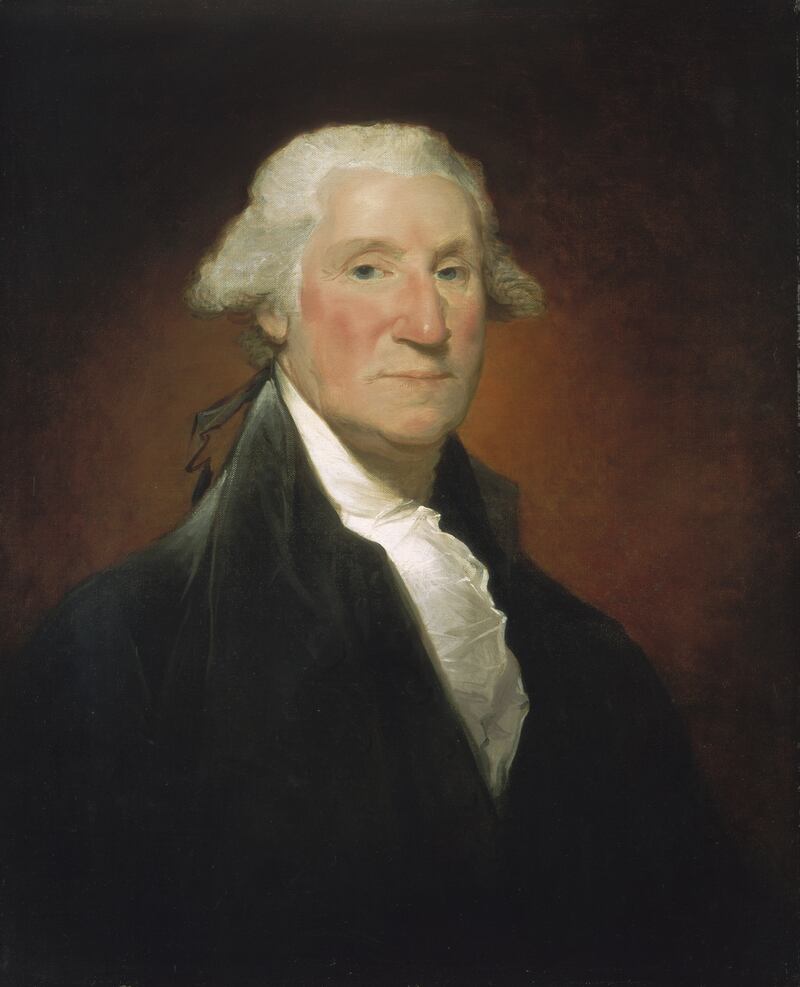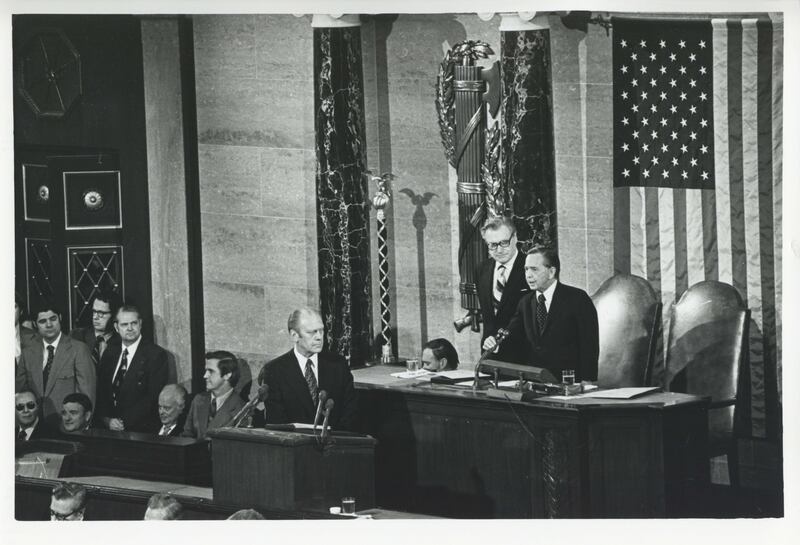For more than two decades now I have annually attempted to write a personal version of a State of the Union address. It has never been an endeavor to write what the sitting president — Democrat or Republican — would, could or should say to the nation. It’s simply my version of a message.
Here we are again. A new year and decade where the country faces significant challenges and extraordinary opportunities. This year’s State of the Union is unique in that it is only the second time in our nation’s history that the address will be delivered by a president standing in front of members of the House of Representatives who voted on articles of impeachment.
I will restate, for those whose confirmation bias, hyperpartisanship or instant certainty will cause them to miss this — I am not suggesting that President Donald Trump would, could or should deliver this version of the address — it is just the State of the Union from the perspective of one guy with an opinion and a pen.
Madame Speaker, members of Congress and my fellow Americans — We are gathered in the people’s house in our nation’s capital to have a conversation about the state of our union. From this house to your house, wherever that might be in this great nation, I remind you all that I am here to talk about the state of the union — not the state of the government.
Every president in America’s history has regularly delivered a report to Congress on the state of the union as required by the Constitution. For years it was done in writing but eventually became a formal report, then a speech and ultimately a political spectacle.
Our first president, George Washington was laser focused and brief offering only 1,083 words while Jimmy Carter delivered an entire tome (fortunately, he did not deliver it as a speech) of 33,667 words. Bill Clinton holds the record for the longest verbal delivery of a State of the Union clocking in at one hour, 28 minutes and 49 seconds in 2000 and Richard Nixon the shortest at just under 29 minutes in 1972.
It is safe to say that in this chamber the old adage rings true, “After all is said and done, much more is said than is ever done.” Tonight, in honor of the fact that on this day in 1789 George Washington was elected as our first president, I will attempt to take a Washingtonian approach to the state of our union and use fewer words while inviting you, my fellow Americans, to act and get things done.
Most Americans are tired at the state of our politics. They are exhausted and exasperated by the never-ending rage in our political rhetoric that is ruining our ability to have meaningful dialogue on critical issues.
President Washington himself declared of partisan politics, “One of the expedients of party to acquire influence within particular districts is to misrepresent the opinions and aims of other districts. You cannot shield yourselves too much against the jealousies and heartburnings which spring from these misrepresentations; they tend to render alien to each other those who ought to be bound together by fraternal affection.”
As Americans we must be bound together and never allow misrepresentations, political ambition and the quest for personal power to divide the citizens of this nation. Too many Americans feel powerless and hopeless, uncertain as to what to do and unable to see how they can impact change.

I am often asked the question, “What can I do?”
We far too often look to politics when we should be looking to people and principles.
The way out and the way up for America has nothing to do with politics, something to do with policy, more to do with principles — and everything to do with people.
What can you do? The state of our union and the future of our nation are found in quiet moments, far from public view, where we focus on people. A neighbor helping a neighbor in need, an already overworked teacher staying late to help a struggling student, a fifth grader standing up to a bully for a classmate or local citizens rallying around the family of a deployed soldier — these are the type of things that each of us can do — every day.
It is true that we are in the midst of some difficult days and trying times as a nation. Yet I remain convinced that our best days as a country are still ahead of us. Why the optimism? It has little to do with glasses being half full or even rose-colored. It has everything to do with the American people and the uniquely American principles that have fueled and fostered the greatest civilization the world has ever known.
I have traveled the country and found that the core principles, values and ideas of freedom, free enterprise, education, civil society and opportunity still ring true to Americans from every walk of life. These are not liberal or conservative ideas — they are simply American.
I have seen these ideas manifest in big cities and rural communities, I have heard these principles echo from podiums in convention centers to the pulpits of churches, and I have felt the stirring strains of our American voice as these values were spoken softly to children in inner-city schools and in humble homes. American principles have made and moved our nation.
Together we must reject the idea that we are on the verge of a civil war. I believe we are actually on the verge of a civil debate. America is always at its best when we are a nation of big ideas and honest, open, respectful debate. The kinds of conversations that were central to the emergence of a new nation will be the cornerstone of a new decade of prosperity in America.
My hope is to turn the attention of our citizens away from the words of Washington, D.C., and the political class and focus it where it belongs — the actions found in local communities. Those of us in this House chamber tonight can work to make government smaller, smarter and more service-driven. Yet, smaller, smarter government alone is not the answer to the issues of our day — America will succeed by fostering bigger citizens, stronger neighborhoods and more heroic communities that can create sustainable local solutions.
America will succeed by fostering bigger citizens, stronger neighborhoods and more heroic communities that can create sustainable local solutions.
What can you do? Consider a few of the following “what ifs” and make them “what is” in your life.
What if we engaged in elevated dialogue instead of partisan rhetoric?
What if “we the people” realized that community and culture lead and the politicians follow?
What if we all realized there is much more that unites than divides the nation?
What if we recognized that the solution to any problem begins when someone says, “Let’s talk about it”?
What if we all understood that solutions to problems don’t emanate from Washington but are found in our homes, neighborhoods and communities?
What if we acted on the inclination of our better angels to serve those around us?
What if we all expected more, not less from our leaders?
What if we expected more from ourselves?
What if, every day, each of us decided to see something that inspires, say something that uplifts and do something that makes a difference?
This may seem like an impossibly unrealistic list. But what if we tried anyway?
One thing I know is that Americans may well be the best in all the world at transforming a “what if” into a “what is!”
Washington, in his farewell address wrote, “Citizens, by birth or choice, ... The name of American, which belongs to you in your national capacity, must always exalt the just pride of patriotism more than any appellation derived from local discriminations. With slight shades of difference, you have the same religion, manners, habits, and political principles. You have in a common cause fought and triumphed together; the independence and liberty you possess are the work of joint counsels, and joint efforts of common dangers, sufferings and successes.”
We have fought and triumphed together in this country. Our freedom comes from joint counsels when we reason together and combine effort to tackle tough issues. America has an inherent problem-solving spirit which longs for the kind of unity, compromise and coalitions that create action and produce measurable achievements.
We should all remember that more important than who sits in the Oval Office is who sits at the kitchen table; more important than who sits behind the Resolute Desk in the West Wing is who sits behind the desk of a small business; more important than who sits in the situation room is who sits in the hospital, city council and living room. That is what makes the difference for America.
Each of us, in our time and turn, can do something, large or small. And that, my fellow Americans, is what we must do. That is all I think that needs to be said. The test for our nation will be realized in what each of us will choose to do. Let us begin tonight to ask, and answer the question, “What will I do for my neighbors, community and the amazing country we call America?”


